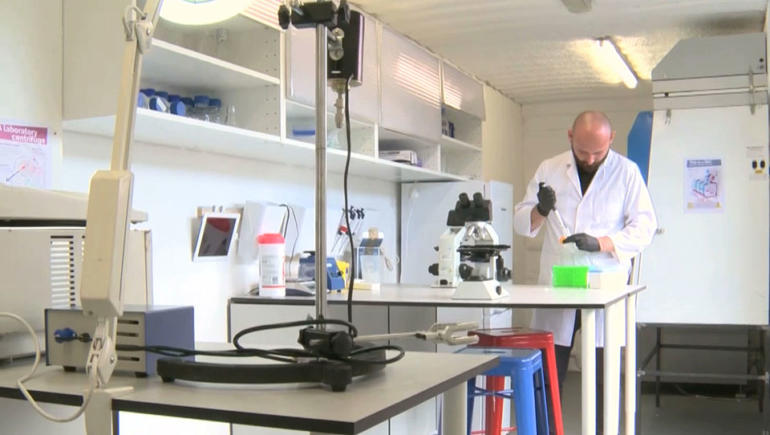In London, a new space for biotechnology companies is breaking from tradition to attract a more diverse group of entrepreneurs. A complex of shipping containers, known as “Open Cell,” is being transformed into biotech labs and workspaces. This bio-village has the backing of the local council and Imperial College University. CGTN’s Natalie Powell reports.
It’s not exactly where you’d expect to find a bustling hub of successful biotech start-ups.
But a closer look inside the green and neon pink shipping containers reveal that’s exactly what you’ve got.
The co-founders of Open Cell, Thomas Meany and Helene Steiner, say they wanted to offer an unconventional workspace to non-traditional biotech companies like theirs.
“A lot of companies are starting to emerge from very unusual backgrounds, both myself and Helene have not got a formal education in biotechnology or biology,” said Meany.” I’m a physicist she’s a designer, so we are very unusual and a lot of people on this site have that similar flair.”
But even the co-founders admit that they were a little skeptical on hearing about the location at first.
“I was, in the beginning, a little bit suspicious because I thought I’m not sure I can build a bio-lab in a market stand,” said Steiner. “But then he opened the door and there was this empty shipping container park.”
There are around 50 plots for rent in total, and one of the big selling points is that companies can transform the space however they like.
Inside each of the shipping containers is a whole range of new ideas being developed, from sustainable bioplastics for the fashion industry to new waste removal technologies and even vegan cosmetics. But for the entrepreneurs sharing the Open Cell space, it’s all about community and a place where they can bounce ideas off one another and collaborate.
For the founders of Chips Board – a company turning industrial potato waste into materials used in furniture and fashion – the sense of community was a huge draw.
“We came to this space and we fell in love,” Rob Nicoll told CGTN. He’s the Chief Product Officer for Chips Board. “Because they gave us this freedom to do whatever we want with the containers, because the containers they are blank slates, so we’ve turned this one into a materials lab. Some people have office spaces, we have an office space in other container and also the community around in this area is all new bio-based.”
By visiting each container, you get a real sense of the diversity of projects Open Cell attracts. And this break from traditional biotech spaces, combined with a community on hand to lend advice or equipment has seen demand for these units grow.
 CGTN America
CGTN America
